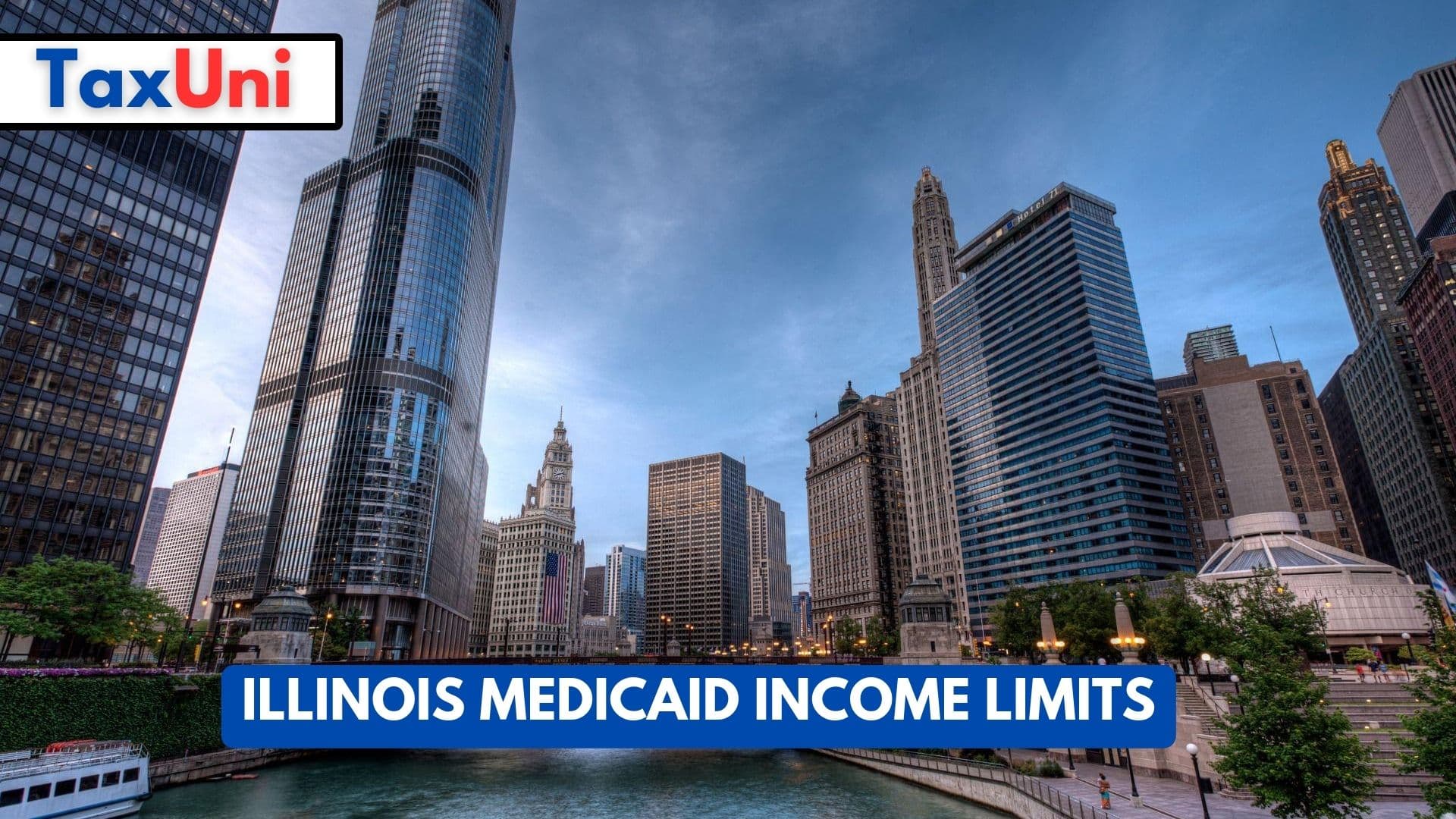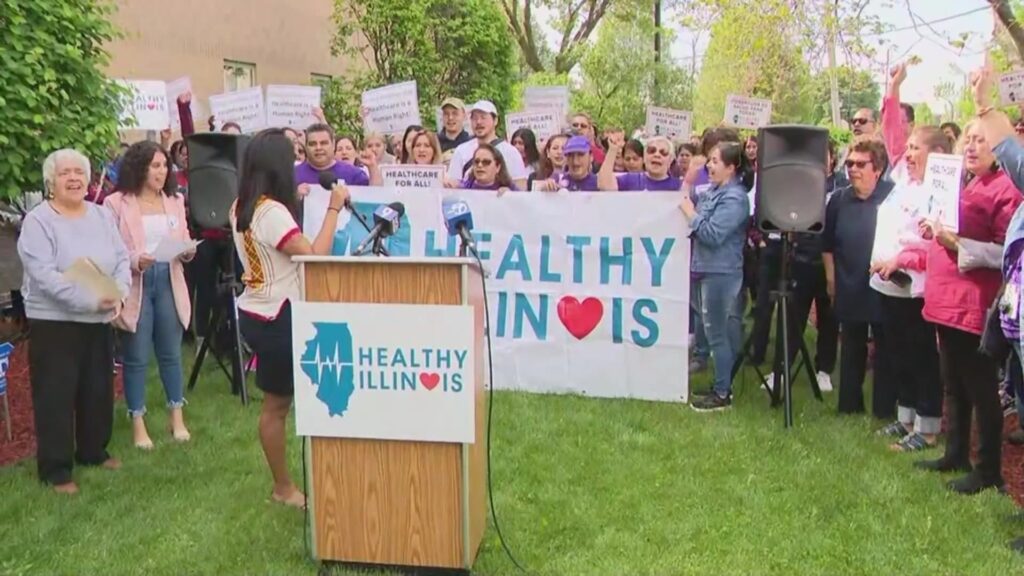Illinois Medicaid Income Limits
Illinois Medicaid is a government-sponsored healthcare program that provides essential medical services to low-income individuals and families in the state of Illinois. Administered by the Illinois Department of Healthcare and Family Services (HFS), the program aims to ensure that eligible residents have access to affordable healthcare coverage

Contents
In the United States, healthcare access is a critical concern for many individuals and families, particularly for those with limited financial resources. To address this issue, the government introduced the Medicaid program. Illinois Medicaid is a state-specific program that provides essential healthcare coverage to eligible low-income residents. This article aims to understand Illinois Medicaid, including eligibility criteria, the application process, income limits, redetermination, and the Illinois Medicaid card.
Illinois Medicaid is a joint federal and state program designed to offer medical coverage to qualified low-income individuals and families. Administered by the Illinois Department of Healthcare and Family Services (HFS), the program plays a crucial role in providing healthcare services to those who might otherwise be unable to afford them. Illinois Medicaid aims to improve the health and well-being of its beneficiaries by ensuring access to comprehensive and cost-effective medical care.
Who Can Apply for Illinois Medicaid?
Eligibility for Illinois Medicaid is primarily based on income, family size, and citizenship status. The program covers a broad range of individuals, including children, pregnant women, parents and caretakers, individuals with disabilities, and the elderly.
In Illinois, children under the age of 19 may be eligible for Medicaid, regardless of their parents’ coverage status. This provision ensures that children have access to essential healthcare services to support their growth and development.
Pregnant women with limited financial resources can apply for Medicaid to receive necessary prenatal care and medical assistance during pregnancy and childbirth.
Low-income parents and caretaker relatives who meet the income and other eligibility requirements may qualify for Illinois Medicaid to support their healthcare needs.
Medicaid provides crucial support to individuals with disabilities, ensuring access to medical services, therapies, and other necessary treatments.
Elderly individuals (65 and older) who meet the income and other criteria may be eligible for Medicaid to address their healthcare needs in their later years.
Additionally, there are special categories, such as the Aged, Blind, or Disabled (ABD) category and the FamilyCare program, which cater to specific groups with unique healthcare needs.

How to Apply for Medicaid in Illinois?
Applying for Illinois Medicaid is a relatively straightforward process, and there are several ways to do so:
Online: The state’s online application portal is the easiest and most convenient way to apply for Illinois Medicaid. The portal can be accessed through the Illinois Department of Healthcare and Family Services (HFS) website.
In-Person: Applicants can also apply in person by visiting a local Illinois Department of Human Services (IDHS) office. Trained staff will be available to assist with the application process and answer any questions.
Mail: Individuals can request a paper application form and mail it to the appropriate address. The application form can be obtained from local IDHS offices or downloaded from the official HFS website.
Phone: For those who prefer applying over the phone, a toll-free number is available for Medicaid application assistance. Applicants can call the helpline to speak with a representative who will guide them through the process.
Income Limits 2024
Eligibility for Illinois Medicaid is determined based on the applicant’s household income and family size. As of 2024, the income limits for different Medicaid categories in Illinois are as follows:
- FamilyCare: The maximum income limit is typically set at 138% of the federal poverty level (FPL) for parents and caretaker relatives. For a family of four, this would be approximately $35,958 annually.
- Children: Children up to the age of 19 are eligible for Medicaid with a maximum income limit of up to 213% of the federal poverty level (FPL).
- Pregnant Women: Pregnant women can qualify for Medicaid with an income limit of up to 213% of the federal poverty level (FPL).
- Adults without Dependent Children: Adults without dependent children may be eligible for Medicaid with an income limit of up to 138% of the federal poverty level (FPL).
- Aged, Blind, or Disabled (ABD): The income limit is generally set at 100% of the federal poverty level (FPL) for individuals in the ABD category.
It’s important to note that these income limits are subject to change based on federal guidelines and state policies, so it’s essential to check for the most up-to-date information when applying.

Illinois Medicaid Redetermination
Once an individual or family is enrolled in Illinois Medicaid, they are required to undergo a process known as redetermination. Redetermination is a periodic review of the beneficiary’s eligibility to ensure they still meet the criteria for continued Medicaid coverage. The frequency of redetermination varies depending on the specific Medicaid category and the individual’s circumstances.
During the redetermination process, beneficiaries will be asked to provide updated information about their income, family size, and any changes in their circumstances. It’s crucial for beneficiaries to respond promptly and provide accurate information to avoid potential interruptions in coverage.
Illinois Medicaid Card
Upon approval, eligible individuals and families will receive an Illinois Medicaid card. This card serves as proof of Medicaid coverage and contains important information, including the beneficiary’s name, Medicaid ID number, and the date of coverage. The card should be presented whenever medical services are sought from a healthcare provider or facility that accepts Medicaid.





